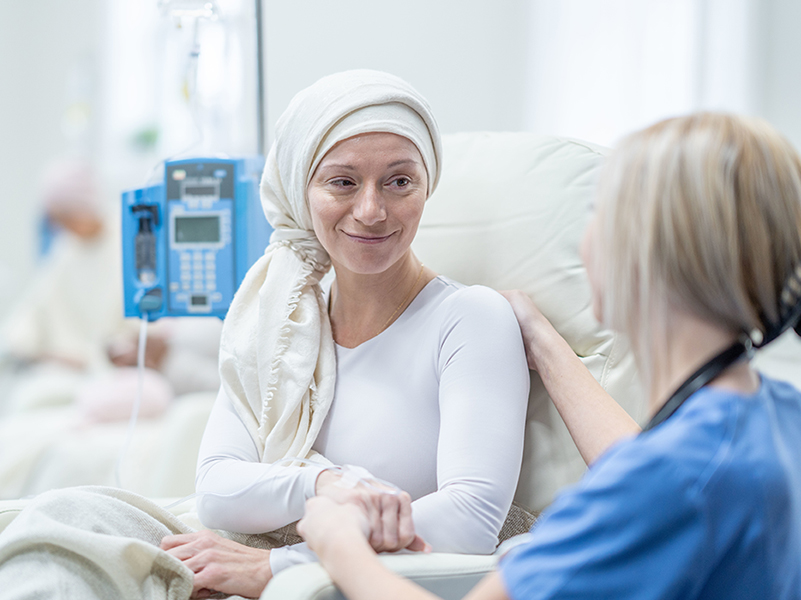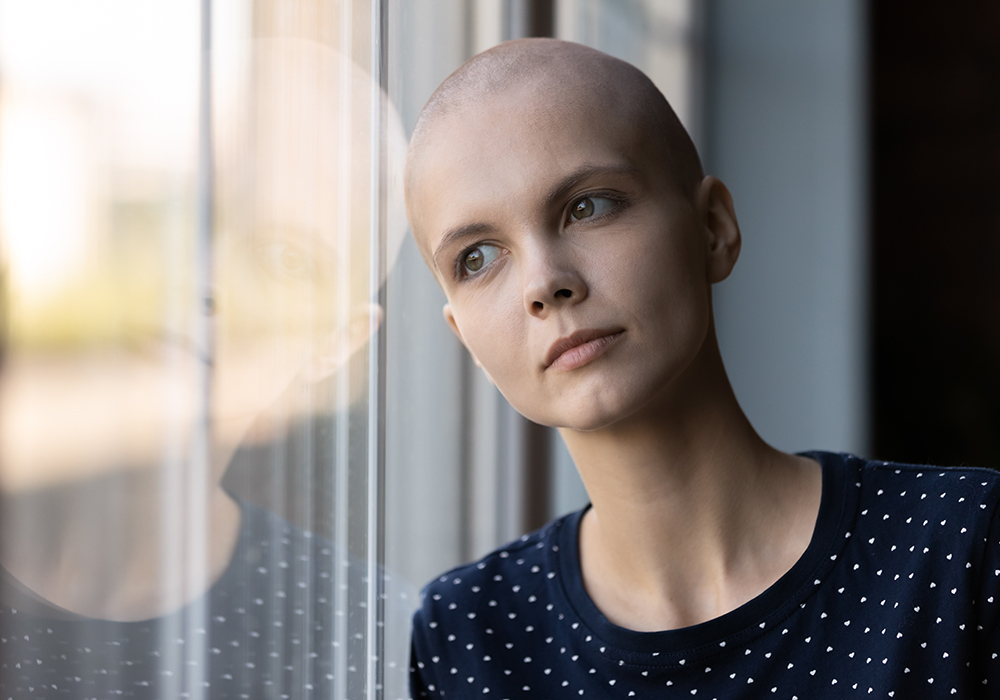Reading has always been a way for me to support well-being. On any given day, I typically have an audiobook for the car and long dog walks, a Kindle book for convenience, a “real book,” and some sort of spiritual reading. And I am thrilled to now have the opportunity to teach my two-year-old grandson about the wonders of the public library.
Today, I have 18 books on request at the library in various formats and I am patiently waiting my turn to consume them. Between Two Kingdoms by Suleika Jaouad (published in 2021) was on my list for months. I seldom select books about individuals diagnosed with cancer, but now that I’ve read it, I’m glad I chose this one: It is a thought-provoking read for an oncology nurse.
Jaouad’s Story
The autobiography describes Jaouad, who recently graduated from college at age 22 and was about to begin a coveted job—until her career trajectory grinds to a halt when she was diagnosed with acute myelogenous leukemia. The all-too familiar story is a startling reminder for oncology nurses that the long-term physical and psychological effects of a cancer diagnosis can upend not only the patient, but also their significant others.
Following four years of therapy, Jaouad embarked on a 100-day road trip across the United States to try to either return to normal or discover her “new normal” life. Jaouad pensively articulates how difficult re-entry can be and how unprepared she was for understanding what her life would look like post-treatment.
The Takeaways for Oncology Nurses
We regularly care for patients who have been newly diagnosed with cancer. On some level, we are aware of how the diagnosis affects their day-to-day lives, but sometimes we forget just how truly disruptive it is. Jaouad described how she, her family, and loved ones were forever changed by the diagnosis and how they put their lives on hold to become caregivers and a support team.
Jaouad also put her exciting new career on hold, although she thought it would be only briefly. As it is for so many patients, it was more than a short hold, and it was emotionally and financially costly.
An estimated 50% of individuals of individuals diagnosed with malignancy experience financial toxicity, but less is known about the financial consequences of those in caregiving roles. Increasing evidence exists that young adults (aged 15–39 years) are at significant risk for financial toxicity, not only during cancer treatment but also well into survivorship. Evidence is emerging on the important role of oncology nurses, especially nurse navigators, in mitigating the consequences of financial toxicity.
Jaouad also poignantly mourned her scars from access devices; the long-term physical effects of treatment on fertility, bone health, and other body systems; and her physical limitations because of the lifesaving treatment she received. Although Jaouad acknowledged she is grateful for the treatments she received, she was frustrated and saddened by long-term effects and limited attention from her care providers.
Oncology nurses are well aware of those effects, but hearing about their relentless nature from the patient perspective is profound. It reminded me that early intervention with ongoing standardized assessments and evidence-based interventions is critical.
The Psychosocial Toll of Survivorship
What struck me most about Between Two Kingdoms was the author’s uncompromising search to find and define her new normal after completing treatment. Ringing the bell—a controversial ritual in itself—at the end of treatment does not mean that a patient has a plan for or is ready to reenter a world beyond cancer.
Although good survivorship care focuses on the early intervention and management of physical symptoms, Jaouad’s story suggests a need for more assessment and intervention surrounding the psychosocial consequences of treatment. Oncology nurses can help facilitate patients’ reentry and help them find their new normal through interventions such as follow-up education and support, peer support, exercise interventions, and interprofessional or multicomponent rehabilitation programs. However, the evidence for the strategies’ effectiveness is limited and more research is needed, particularly around support for families and loved ones.
Survivors like Jaouad and their families know firsthand that their life can change again in an instant. They are forever changed in substantial ways, and it comes with significant physical and emotional costs. We need to acknowledge those costs and emotions and encourage self-care for these amazing humans and for ourselves as the nurses who care for them. ONS has an entire Well-Being Learning Library filled with resources that may provide a starting point.
Between Two Kingdoms was an unexpected surprise. It certainly is nothing I would read in a professional journal, yet I learned from it because it challenged me to think about the impact of malignancy from a patient and family perspective. Reading is part of my self-care. Good books introduce you to new ideas and people and take you to places and experiences you might otherwise not have. I challenge you to discover or rediscover the joy that comes with reading a good book.






